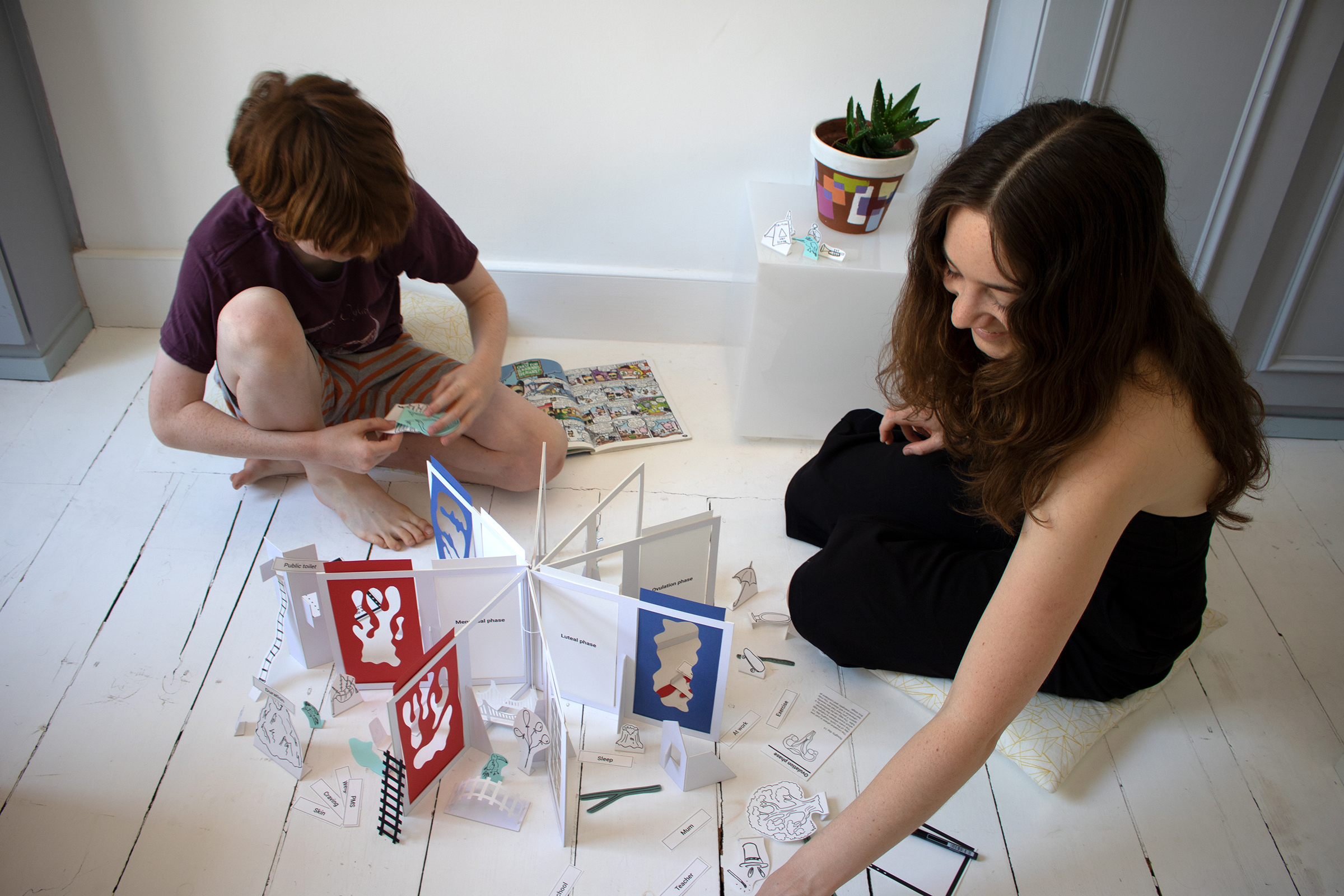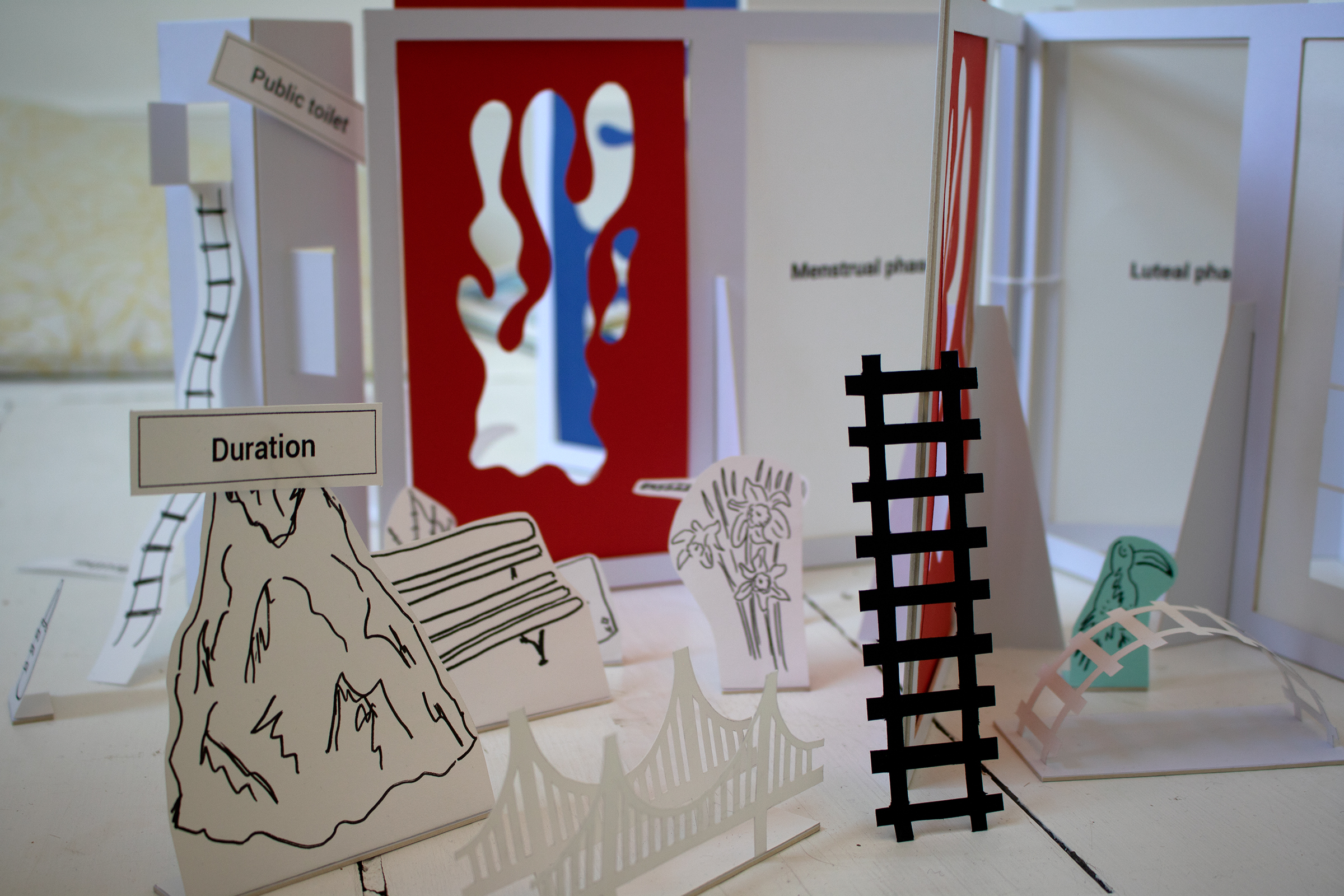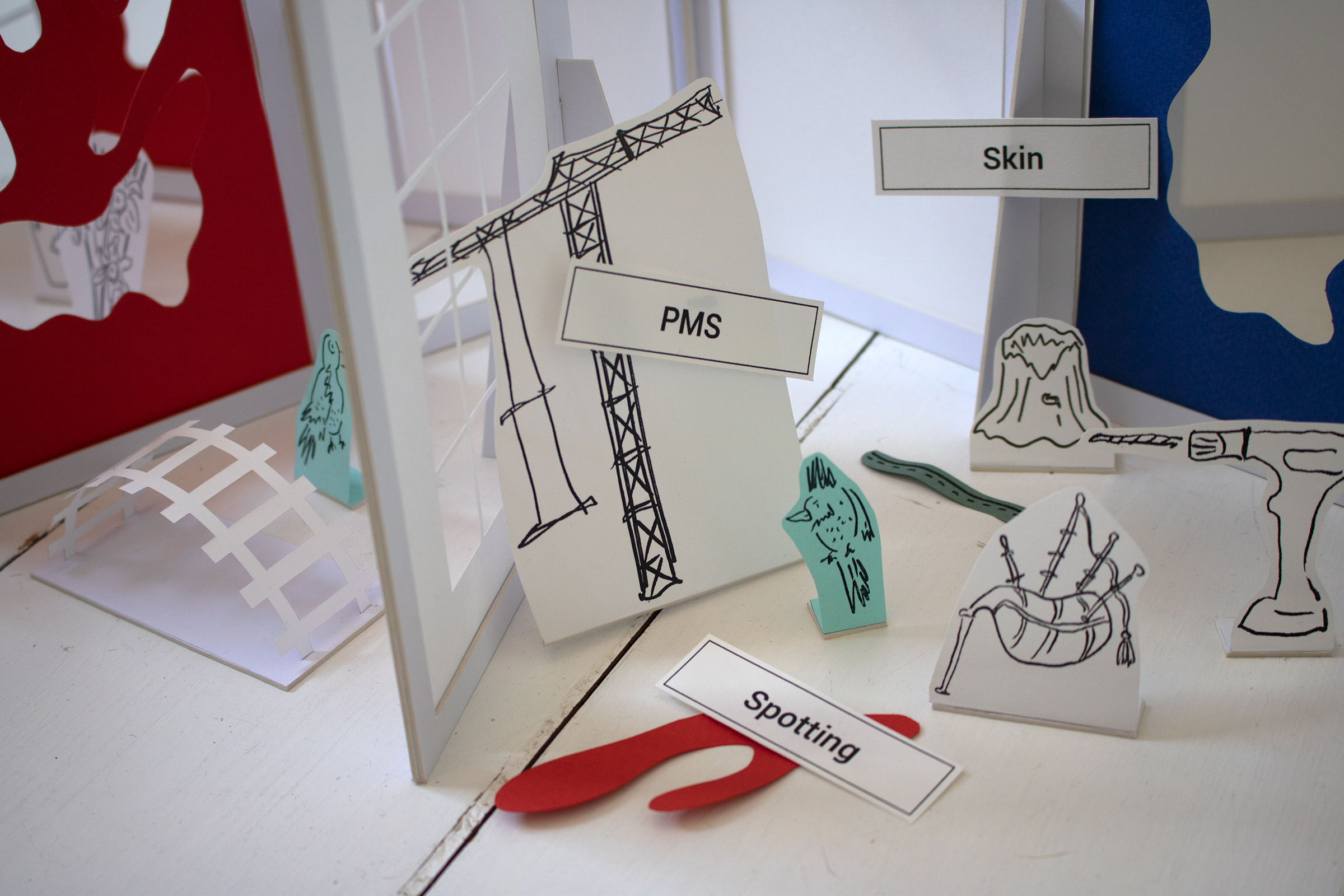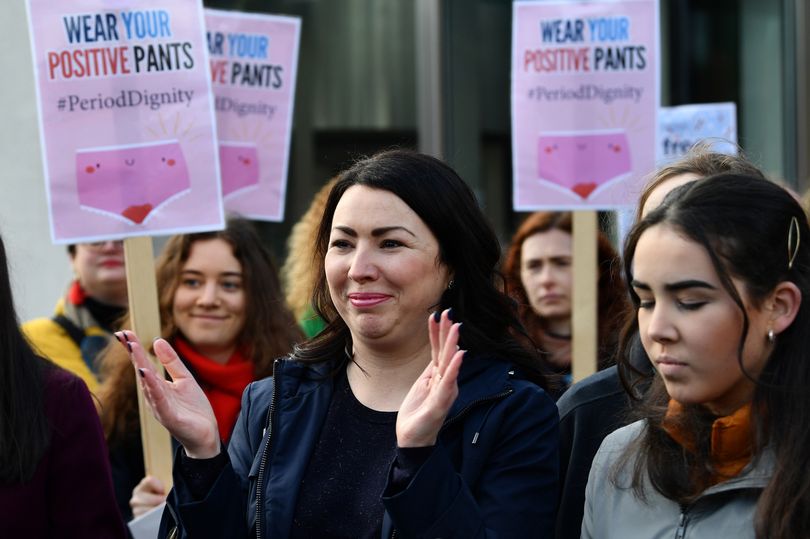Menstrual Matters

Shortlisted for the Global Graduate Design Show 2020, run by ARTSTHREAD & i-D
Part of London Design Biennale ‘Design In An Age of Crisis’
Menstrual Matters is a series of narrative props to explore menstruation, allowing participants to map their cycle and navigate different stages. Using a pop-up stage with cut-out props, it engages, informs and empowers participants to collectively reflect on issues associated with menstruation.
The current narrative we have around menstruation is one of discretion and embodied shame. Advertising rhetoric often perpetuates this, with words like ‘safe’, ‘secure’ and ‘hygienic’. Menstrual education itself is similarly superficial and often an ‘add on’ in biology class. In truth, every cycle is different and requires a flexible narrative. Menstrual Matters encourages people to reject menstrual misconceptions and reframe the narrative. Explore, educate, empower, through tangible thinking.
Part of London Design Biennale ‘Design In An Age of Crisis’
Menstrual Matters is a series of narrative props to explore menstruation, allowing participants to map their cycle and navigate different stages. Using a pop-up stage with cut-out props, it engages, informs and empowers participants to collectively reflect on issues associated with menstruation.
The current narrative we have around menstruation is one of discretion and embodied shame. Advertising rhetoric often perpetuates this, with words like ‘safe’, ‘secure’ and ‘hygienic’. Menstrual education itself is similarly superficial and often an ‘add on’ in biology class. In truth, every cycle is different and requires a flexible narrative. Menstrual Matters encourages people to reject menstrual misconceptions and reframe the narrative. Explore, educate, empower, through tangible thinking.





